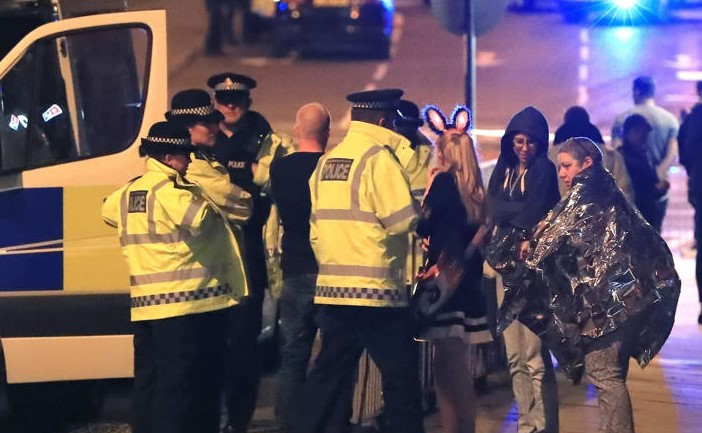MI5 chief ‘profoundly sorry’ agency did not prevent Manchester Arena attack

The head of MI5 has said he is “profoundly sorry” that the intelligence agency failed to prevent the Manchester Arena attack.
Ken McCallum, the director general of the Security Service, said he “deeply regretted” that his officers failed to gather intelligence that could have foiled the plot, after a public inquiry concluded it was a “significant missed opportunity”.
In a statement following the publication of the inquiry’s damning report, Mr McCallum said: “MI5 exists to stop atrocities. To all those whose lives were forever changed on that awful night: I am so sorry that MI5 did not prevent the attack at the Manchester Arena.”
The damning report concluded that MI5 missed a “significant” opportunity to prevent the Manchester Arena attack by failing to act on intelligence which could have uncovered the bomb.
The Security Service received a vital piece of information about Salman Abedi before he murdered 22 people in May 2017, but did not act swiftly enough on it, the public inquiry into the atrocity found.
It could have led officers directly to the Nissan Micra, parked outside Devell House in the Rusholme area of Manchester, where he was storing the homemade device, the report said. He detonated it four days later in a crowd outside an Ariana Grande concert at Manchester Arena.
Sir John Saunders, the inquiry chairman, said a better response from MI5 “might have prevented the attack” and concluded the intelligence agency took a “risky” approach to investigating returnees from Libya.
He identified five other failings of the MI5 and counter-terrorism police:
- Abedi not being correctly categorised as a formal subject of interest, which would have led to a formal assessment of the threat he posed in the years before the attack. Instead, he was categorised as a lower-level ‘de-facto’ subject of interest in 2014 and in 2016.
- Twice failing to refer Abedi to the Prevent deradicalisation programme, in 2014 and 2015/16.
- Failure to analyse over 1,000 text messages exchanged between Abedi and a jailed terrorist, Abdalraouf Abdallah, in 2014.
- A delay downloading the contents of an illicit mobile phone used by Abdallah in jail, seized in February 2017 but not examined until June 2017, weeks after the bombing.
- The “risky” decision to focus on the terror threat from the Islamic State terror group in Syria “meant that both the Security Service and CTPNW (Counter-Terrorism Policing North West) underestimated the risk from Libya in 2017”.

The evidence of MI5 and counter-terrorism police was given amid significant secrecy, much to the anger of survivors and bereaved families.
Four MI5 witnesses and 10 police officers gave evidence in secret after Sir John agreed that national security could be compromised if it was aired in public. A “gist”, or summary, of the secret hearings was read into the public record.
Abedi came from a Libyan family who were said to harbour extremist views and likely learnt to build the suicide bomb with his brother and co-conspirator, Hashem, during one of their visits to the country.
MI5 came close to uncovering the deadly plot when they received a piece of intelligence which could have led to Abedi being stopped when he returned to the UK from Libya four days before the bombing.
The specific nature of the intelligence has not been disclosed to the public for national security reasons, but Sir John said the first MI5 officer to assess it failed to discuss it with colleagues straight away and did not write a report on it the same day as they should have.
When the MI5 officer did eventually write the report, it “did not contain sufficient context”, Sir John said.
“The delay in providing the report led to the missing of an opportunity to take a potentially important investigative action,” the report said.
There was said to be a “real possibility” that a quick investigation would have produced “actionable intelligence” and meant Abedi’s return to the UK on May 18, 2017 “would have been treated extremely seriously by the Security Service”.
The report continued: “This could have led to (Abedi) being followed to the Nissan Micra which contained the explosive.”
If Abedi had been stopped at Manchester Airport four days before the attack, Sir John said, there was a chance officers would have found him to be in possession of the switch for the bomb.
His 226-page report also pinned “significant responsibility” on Abedi’s family for the radicalisation of Salman and Hashem, as well as criticising Didsbury mosque for downplaying its links to the bomber. Hashem was jailed for 55 years in 2020 for his role in helping to plan the attack.







